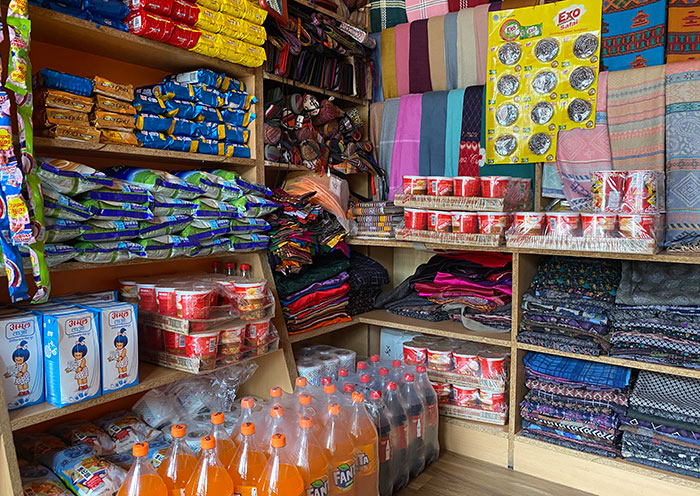Phub Dem | Paro
Traditional handicraft shops in Paro town, which was a tourist hub, is now transforming into grocery stores to cater the local customers.
While most of the handicraft shops still remain closed, others are reopening the store with alternate business modalities as grocery stores, garment shops, restaurants and vegetable stalls. And some have left the business.
It has been almost six months since the handicraft business closed with the first Covid-19 case in Bhutan.
Chimi Dema who has been operating a handicraft business in Paro for the past eight years recently set up a grocery shop with the handicraft items.
She stayed home, jobless for three months. Her house owner reduced the rent to Nu 10,000 starting this month.
If it wasn’t for the rent deduction, she said, she would have left the business. “When there is no business, how can we pay the rent. I hope the grocery business earns enough to pay the rent.”
Chimi does not foresee great prospects from the conversion. Almost all the handicraft shops in Paro are converting into grocery stores.
She said: “The profit margin is minimal from grocery items and there is a bloom already.”
Like Chimi, every handicraft owner is holding onto the business, even when there is no sale, with the fear that they might lose the spot.
Handicraft business, according to the craftspeople is expensive and the competition for the prime location is fierce.
A handicraft owner had invested Nu 1 million to buy a handicraft shop space a year ago. She has to pay monthly rent of about Nu 30,000.
Her landlord reduced the rent by 20 percent for the first three months, but she was asked to pay the full amount starting this month.
Her handicraft shop displayed a mix of souvenirs, edibles, and cosmetics.
She said: “I can’t leave the shop after investing a huge amount. But without business how can I pay the rent?”
Pemba Lhamo who started her handicraft business in 2008 has switched to a restaurant after her shop remained closed for more than four months.
She had been paying rent and other expenses from her savings until June. “My saving has exhausted now. I have to take this alternate business to sustain my family and reserve the site until the tourism industry returns to normal.”
With the local tourism industry suffering major setbacks due to Covid-19, the handicraft people are targeting local demand to sustain through the pandemic.
Unlike others, Tashi Wangmo Handicraft is targeting local demands through online business. She is adamant to change her business model.
She said that her store would focus on things such as religious artefacts, yathra, gho and kira, and locally available bamboo products.
Besides, she said that it was the right time to focus on the real “Made in Bhutan” products with the restriction on imports.
A proprietor, Sonam Choden was planning to set up a grocery store since both her tenants who ran handicraft business had left.
She said that the rooms had been lying idle for two months now.
Although she said that she gave 50 percent rent discount, the tenants left failing to pay the remaining amount, as there was no business.
Tashi Wangmo added that business could revive if people are safe and there is no community transformation. “Just for the sake of tourism business, we cannot afford to risk everyone’s life.”
Meanwhile, the shop owners have applied for alternate business licenses.


